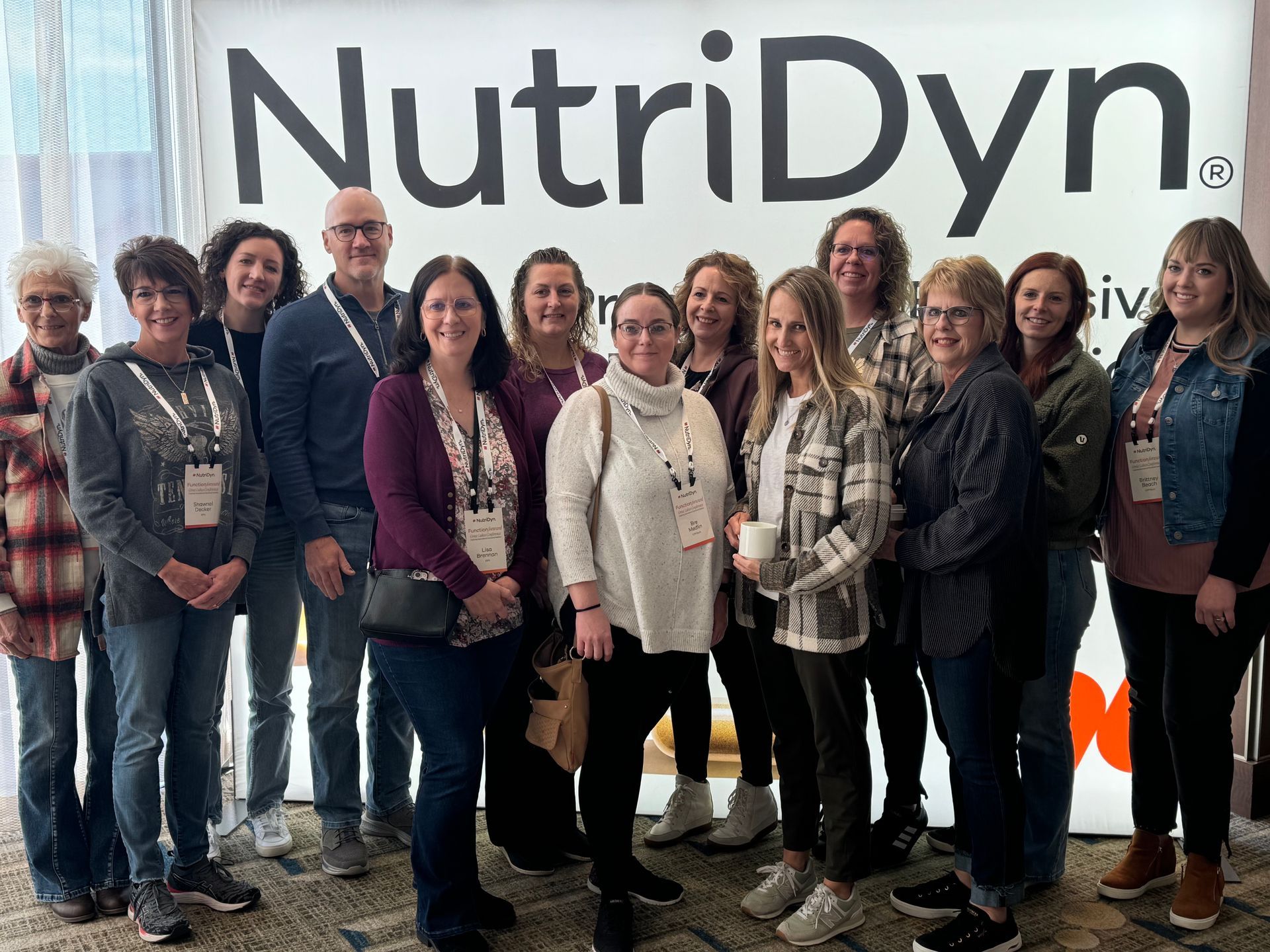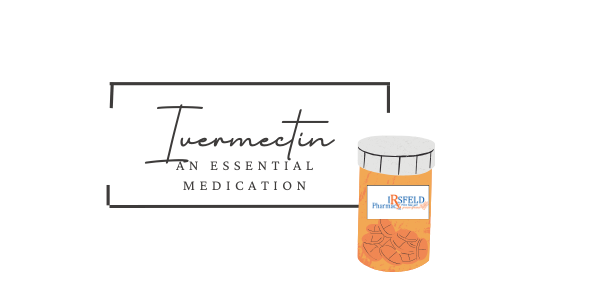Our team picture of the Nutridyn Great Lakes Conference

My team and I attended a conference last weekend that focused on functional health and the use of dietary supplements to help address specific health issues. Our primary supplement vendor is the company NutriDyn, which is based in Maple Plain, Minnesota, a western suburb of Minneapolis. They are one of the few family-owned supplement companies still around, as we see many of those companies being bought up by huge corporations.
I had several goals for the team over the weekend :
1. You should have fun and get to know your fellow employees better.
2. Come away from the conference with ideas to better help our patients and ourselves in our health journeys.
3. I wanted them to experience the NutriDyn culture, which is treating everyone like family and having a passion for helping us so that we can help our patients.
If you ask my team, I hope they will tell you we accomplished those goals.
So, what did we learn so that we can better help you? The answer to that question will be discussed over the next couple of articles. I'm not going to lie, but some days, I feel like I'm on the struggle bus when thinking about topics to discuss. That will not be a problem for some time, as collectively, we came away with a ton of information. The analogy of "drinking out of a fire hose" could have easily been applied to this conference.
I will start with cardiovascular health and some new information and protocols to help you. Many of us see our providers on a routine basis, and when we do, lab work is often part of that visit. A common way to check for cardiometabolic issues is to check our cholesterol levels. Typically, total cholesterol, triglycerides, low-density lipoprotein (LDL), and high-density lipoprotein (HDL) levels are checked. These are great labs to check but are the tip of the iceberg.
If you have cardiovascular disease, are concerned about it due to family history, or are like me and want more information, you can ask your provider to check on the size of your lipids because size does matter when it comes to lipids. The bigger your particle size, the less concern there is from a risk factor. Small, dense lipids are an issue.
Lipoprotein(a) or Lp(a) is an independent risk factor linked to heart disease, even in younger adults and otherwise healthy individuals. LP(a) is a stickier form of LDL that has the potential to cause blockages and blood clots in arteries. Having an elevated LP(a) is almost entirely determined by the genes you inherit; levels are 70-90% genetically determined.
Elevated Lp(a) can cause several types of coronary heart disease, including heart attack, stroke, peripheral arterial disease, aortic valve disease, and heart failure. The risk is even more significant when patients smoke, have high blood pressure, and have type 2 diabetes. In 2018 the National Heart Lung and Blood Institute reported that 1.4 billion people worldwide had an Lp(a) level greater than 50mg/dl.
As you can see from the above information, testing your Lp(a) level should be an essential part of your routine lipid testing. Having an elevated level can increase the risk of facing cardiovascular disease even without elevated cholesterol. Last week, I wrote about a test that I recently had done and one of the markers tested was Lp(a). My level of Lp(a) was 10nmol/L, and the desirable is <70nmol/L, so I was super happy with the results.
Typical treatments used to lower cholesterol, including statins, lifestyle modifications, diet, and exercise, do not lower Lp(a). The diet and exercise options surprised me, and I would encourage you to not stop these lifestyle modifications as they will improve your overall health. However, the good news is that there are alternative strategies that can help you budge the Lp(a) number.
Studies show that patients with low vitamin C levels have elevated Lp(a) levels. Ascorbate deficiency affects the integrity of the endothelial (blood vessel) cell lining, thus promoting the infiltration of Lp(a) and other lipoproteins. In several studies, ascorbic acid levels were decreased in the plasma of coronary heart disease patients. Repleating vitamin C at high doses can help lower Lp(a).
Lp(a) have "lysine binding sites," which are necessary for binding Lp(a) to fibrin, a clotting mechanism. Lysine is an Lp(a) binding inhibitor, which given at high doses could reverse atherosclerotic plaques.
The research of Linus Pauling, the father of Vitamin C, looked at the binding of Lp(a) to strands of lysine protruding from weak and damaged blood vessels causing the build up of plaques in the arteries and vessel. He researched and concluded that giving doses of Lysine and vitamin C at specific doses, he could affect Lp(a) levels and decrease or potential reverse plaquing in these areas.
In a randomized trial, CoQ10 significantly reduced serum levels of Lp(a) compared to placebo. The decrease was 31% compared to 8.2% with placebo. CoQ10 also reduces LDN oxidation and lowers BP in patients with diabetes.
The last nutrient beneficial in to lowering Lp(a) is with tocotrienols, or vitamin E derivatives, specifically delta and gamma forms. I will explore this incredible nutrient in depth in next week's article, as it has so many benefits that it requires its own space.
Once you have your Lp(a) tested and know your level, if it is elevated, you have an action plan to lower your level and decrease your risk of cardiovascular disease which consists of high doses of vitamin C, Lysine, CoQ10, delta, and gamma tocotrienols at specific doses.
Reflecting on the title of this article, investing in your health will require a commitment to resources, which is an investment in your health. You may want to consider having a line-item budget to determine what amount you can invest.
Your investment might include:
- A gym membership or equipment.
- Specific testing.
- Upgrading your food to organic fruits and vegetables and quality proteins.
- Incorporating targeted nutrients to address deficiencies or conditions.
One of the speakers asked the question this weekend: what is the most expensive supplement? I was digging deep to think of which one I would say, but the answer was "the one that doesn't work." How true is that? Supplements that are quality, meaning they have quality ingredients free of impurities and at strengths that have proven effectiveness. We do our due diligence to provide you with protocols and products we use and trust. These ideas are designed to help you in your journey toward optimal health.
Stop by or call the pharmacy if you want help navigating your health journey or specifically testing or lowering your Lp(a). Please visit my website at www.irsfeldpharmacy.com to find this and other archived articles in the blog section.
Until next time, be vigilant about your health!!










VISIT US
HOURS
HOURS
CONTACT US
Fax #: (701) 483-4926


Share On: